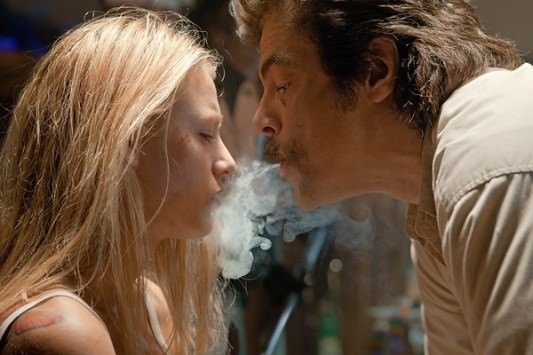"I give the fruit jar a swat with my Stetson and a hundred phosphorescent dots of light explode up into the night sky, winking like muzzle flashes in a treeline, a hundred Alabama lightning bugs, alive and free, and glowing, like sparks from a fire."
- Gustav Hasford
"I stomp my foot and the rat retreats into a shadow.
In the light of the flare my bros in the Lusthog Squad of Delta One-Five look like pale lizards. My bros look up at me with lizard eyes. No slack. I gave them the finger. Their lizard eyes click back to their poker cards.
From his new strategic position, the Viet Cong rat stares back to assert his principles.
The illumination flare trembles, freezes Khe Sanh into a faded daguerreotype. Look at all the junk of modern war spilled across our dusty citadel, look at how bearded grunts hang on while the world spins and gravity cheats, look at the concrete bones of an old French outpost (patrolled at night by the ghosts of dead Legionnaires and by the Mongol horsemen of Genghis Khan)--see how the broken walls of the outpost are like rotting teeth, look out beyond our wire at a thousand acres of blasted moonscape, feel the cold hard terror and the calm of it."
- Gustav Hasford
Basically an addendum to my last post - it needs to be made understood that The Short-Timers and The Phantom Blooper are like two sides to a thematic coin. Both sides represent humanity in its natural states - killing and living, respectively - and both books are just as beautiful to read. The story of both novels has reached a black crescendo by the time we re-meet Joker in Khe Sanh, bullying New Guys into staying alive and throwing corpses into the wire around their little sandbagged compound just to bear fangs at the jungle and fate which is closing in around from all sides. The second book comes in three parts, just as the first, although where The Short-Timers deals in indoctrination, glamour, and truth, The Phantom Blooper deals in rot, re-birth, and then both. It stabs cruelly at the American state-of-mind and brings up the same familiar questions even know. Soldiers as I've come to know them only have on true religion and it's a rebel kind of hate for peace - not that dream of peace, mind you, just the kind of animal that seems to thrive in it, and the attitudes it brews up, and the complacency. People are born to fight but our kind of peace seems to revoke and deny that, sliding a manhole cover over the instincts genetically inherent to us and letting them mutate in the sewer. Anti-war and Pro-war are both words that mean nothing. There's stupid people, smart people, and then there are soldiers.
Philosophy aside, the prose is brilliant and alive with colour. Everything is told in broad, visceral strokes and the drama unfolds in your head in shades of red and green and black where necessary, like the pages of a graphic novel massaged into your head.
In the light of the flare my bros in the Lusthog Squad of Delta One-Five look like pale lizards. My bros look up at me with lizard eyes. No slack. I gave them the finger. Their lizard eyes click back to their poker cards.
From his new strategic position, the Viet Cong rat stares back to assert his principles.
The illumination flare trembles, freezes Khe Sanh into a faded daguerreotype. Look at all the junk of modern war spilled across our dusty citadel, look at how bearded grunts hang on while the world spins and gravity cheats, look at the concrete bones of an old French outpost (patrolled at night by the ghosts of dead Legionnaires and by the Mongol horsemen of Genghis Khan)--see how the broken walls of the outpost are like rotting teeth, look out beyond our wire at a thousand acres of blasted moonscape, feel the cold hard terror and the calm of it."
- Hasford
Why haven't you read these books?





